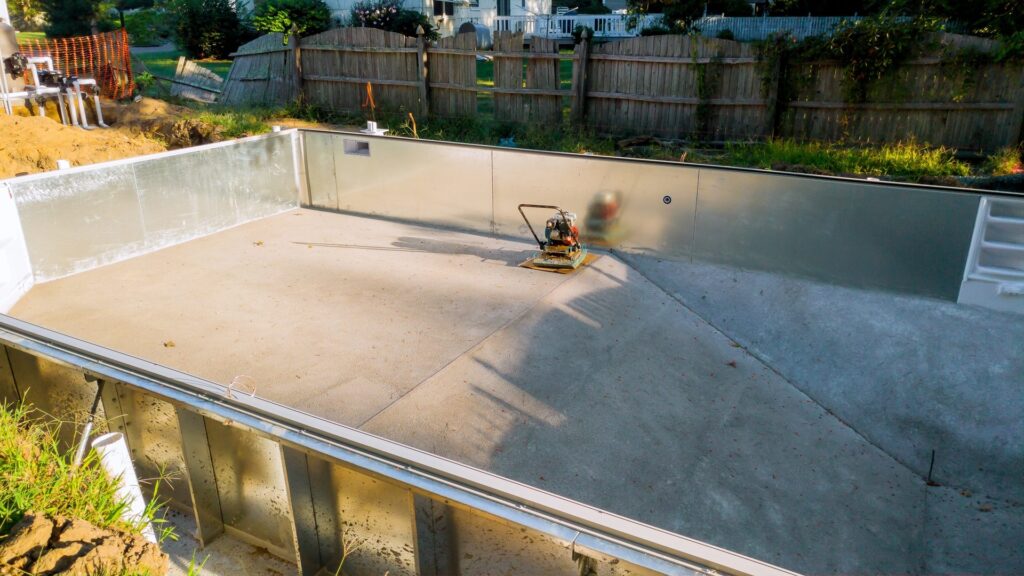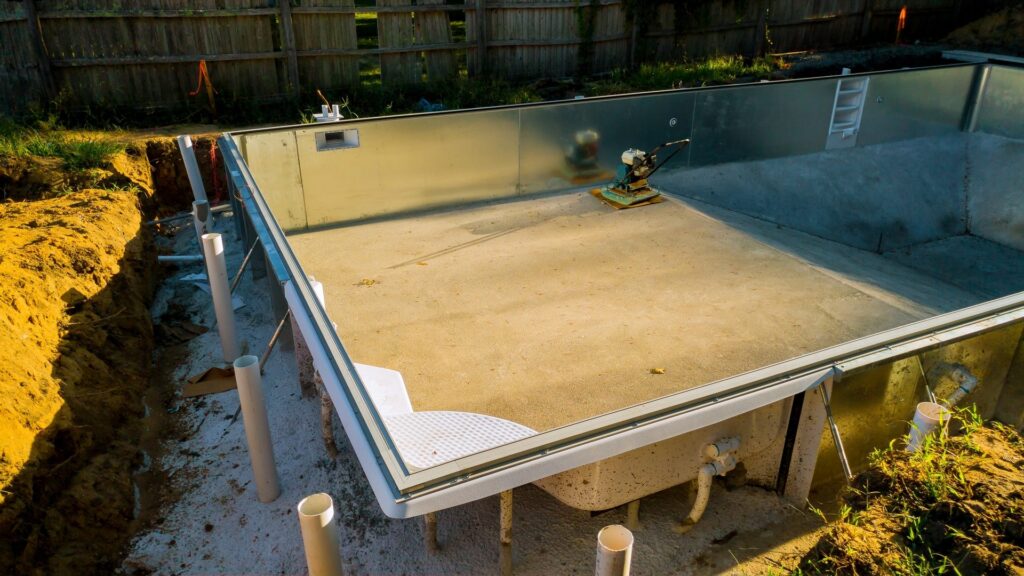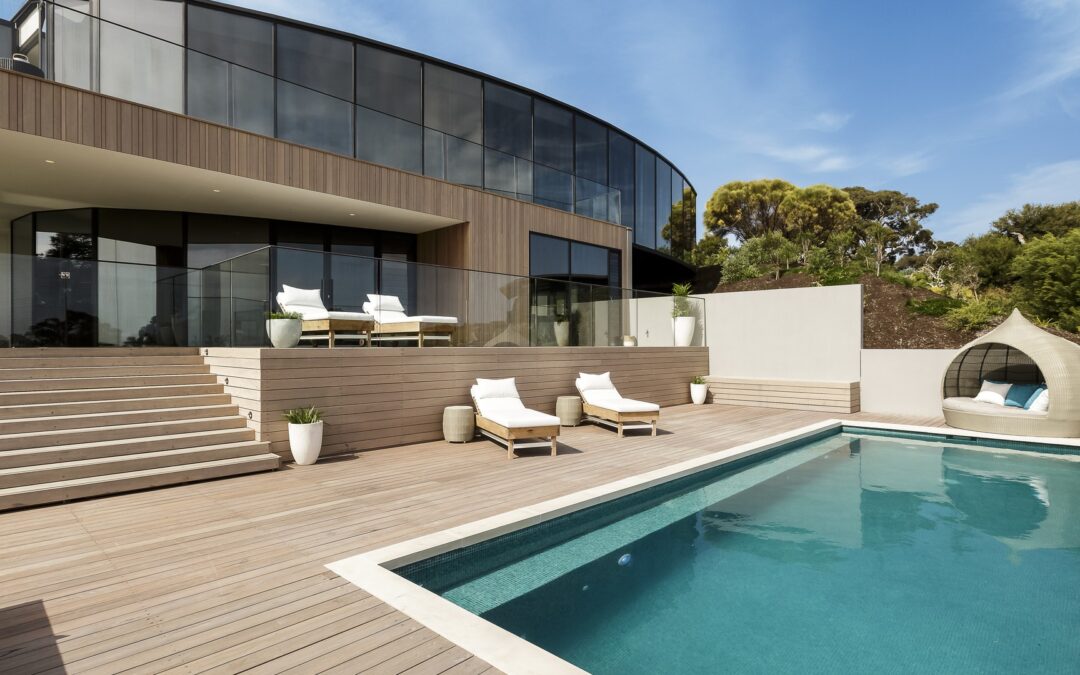When it comes to adding a custom pool to your Atlanta home, the excitement of envisioning your backyard oasis can sometimes overshadow the importance of asking the right questions. Yet, the foundation of a smooth, hassle‐free pool installation process lies in thoroughly vetting your contractor before work begins. With Atlanta’s unique climate, strict local regulations, and high standards for craftsmanship, it’s crucial to partner with a pool contractor who is not only experienced and reliable but also fully transparent about every aspect of the project. In this blog, we compile an extensive list of essential queries to ask your potential pool contractor, explain why each question matters, and provide tips on how to use the answers to make an informed decision that will help ensure a successful project.
In the competitive Atlanta pool market, a contractor’s experience, licensing, and communication style are as important as their ability to complete a project on time and within budget. By asking targeted questions, you can avoid unpleasant surprises and ensure that your investment is protected from the very start. From determining how long the project will take to understanding the nuances of local permitting and safety standards, this guide covers everything you need to know before signing on the dotted line.
Below, we break down our essential questions into several categories that address key aspects of pool construction—from business stability to design details and post-installation maintenance. Each section explains why these topics are important, so you can confidently engage in a conversation with your pool contractor.
Understanding the Atlanta Pool Market and the Importance of Asking Questions
Atlanta homeowners value outdoor living, and a pool is often the centerpiece of a well-designed backyard retreat. However, the installation process can be complex. The local climate—characterized by hot, humid summers and relatively mild winters—demands durable, energy-efficient designs that comply with both local and state regulations. Additionally, zoning laws and permitting requirements in Atlanta are stringent, meaning that your contractor must have a deep understanding of the legal landscape.
Asking the right questions not only helps you verify that the contractor is knowledgeable about these specifics but also signals that you are an informed customer. A reputable contractor will appreciate your diligence and will be happy to provide detailed responses. Conversely, evasiveness or a lack of transparency can be a red flag that the contractor may not be the best choice for your project.
By engaging in a thorough interview, you can gauge the contractor’s ability to manage the entire project—from initial consultation and design to construction and post-installation support. This process minimizes the risk of delays, unexpected costs, and subpar workmanship, and ultimately ensures that your custom pool meets your expectations both aesthetically and functionally.
Essential Questions to Ask Your Atlanta Pool Contractor
Below is a comprehensive list of questions organized by category. Each section focuses on a critical area of concern, offering guidance on what to ask and why the answers are so important.
Contractor Experience and Business Stability
How long have you been in business, and under what names or ownership structures have you operated?
One of the first questions to ask is about the contractor’s history. Longevity in the business is a strong indicator of reliability. Ask whether the company has always operated under the same name and ownership. If there have been changes, request details to understand the reasons behind those transitions. Contractors with a solid track record (typically more than five to ten years) are less likely to vanish mid-project or leave behind unfinished work.
Can you provide a portfolio of completed projects, particularly ones similar to mine?
Requesting examples of past projects helps you evaluate the contractor’s craftsmanship and style. Look for pools that resemble your envisioned design. A comprehensive portfolio demonstrates not only their experience but also their ability to handle diverse challenges—from unique site conditions to specialized design features that cater to Atlanta’s outdoor lifestyle.
Do you have customer testimonials or references I can contact?
Ask for references from past clients. Speaking directly with homeowners who have worked with the contractor provides firsthand insights into their performance, communication, and problem-solving skills. A healthy list of references is a strong indication of customer satisfaction and business stability.
Licensing, Insurance, and Permits
Are you fully licensed, bonded, and insured?
This is a non-negotiable question. Verify that the contractor holds all necessary licenses as required by Georgia law and local ordinances in Atlanta. Insurance is equally critical. It protects you from liability in case of accidents or damages during construction. A contractor with proper bonding also offers you financial protection if the project is not completed as agreed.
What permits will be required for my project, and will you handle obtaining them?
Pool construction in Atlanta requires strict adherence to local building codes and permitting processes. Ask if the contractor will manage the entire permitting process—from submitting plans to obtaining final approvals. This not only streamlines the process for you but also ensures that all legal requirements are met, reducing the risk of fines or delays.
Can you show me documentation of your current licenses and insurance certificates?
It’s important to see proof. Request copies of your contractor’s licenses and insurance certificates. Verify these documents with the appropriate state or local authorities to confirm their validity.

Project Timeline and Construction Process
What is the estimated timeline for my project from design to completion?
Understanding the timeline helps you plan your schedule and manage expectations. A typical pool installation in Atlanta might take anywhere from 8 to 12 weeks, but factors such as permitting delays, weather conditions, and site-specific challenges can affect this estimate. Ask for a detailed timeline that includes key milestones.
How do you manage potential delays or unforeseen issues?
No construction project is without surprises. Ask your contractor to explain how they handle unexpected delays, such as inclement weather or supply chain issues. A well-prepared contractor should have contingency plans in place and be able to provide examples of how they have successfully navigated similar challenges in past projects.
What is the first step once we sign the contract, and how will the project progress?
Inquire about the initial phases of the project. Typically, the process begins with a detailed site evaluation and finalizing the design. Understanding the sequence—from excavation to plumbing, electrical work, and finishing touches—gives you insight into how the project will be managed and what to expect at each stage.
Cost, Payment Structure, and Financing Options
What is the total estimated cost for my project, and how is it broken down?
Discussing cost in detail is essential. Ask for a comprehensive estimate that covers all aspects of the project, including materials, labor, permits, and any additional features you have requested. Transparency in pricing helps avoid hidden costs later on.
What payment milestones do you require, and how is the payment schedule structured?
A reputable contractor will tie payments to project milestones. Typically, a down payment of around 10–20% is required upfront, with subsequent payments linked to specific phases of construction. Ensure that the final payment is withheld until the project is fully completed to your satisfaction. Ask for details on how payments are processed and whether they are made to a business or personal account.
Do you offer financing options or work with lenders familiar with pool construction?
Financing can be a major part of a pool project. Ask if the contractor offers in-house financing or if they have partnerships with lenders who specialize in home improvement projects. This can make managing the financial aspects of your project much easier.
Are there any additional costs I should be aware of?
Inquire about potential extra charges such as fees for design changes, delays, or unexpected site conditions. Understanding these contingencies in advance helps you prepare for any additional expenses that might arise during construction.
Design, Customization, and Additional Features
How do you approach the design process, and will you work with my architect or designer?
A contractor who collaborates well with other professionals can bring your vision to life more effectively. Ask if they have experience working with architects and designers and how they integrate design details into the construction process. This is particularly important if you have a specific aesthetic in mind or unique site conditions.
What customization options are available for my pool?
Every homeowner’s vision is different. Ask about available design options such as different pool shapes, sizes, water features (like waterfalls, jets, or spas), lighting, and decking materials. Understanding the range of customization available allows you to tailor the project to your exact needs and preferences.
Can you recommend additional features that work well in Atlanta’s climate?
Atlanta’s warm, humid climate and abundant sunshine call for features that enhance energy efficiency and outdoor living. Ask the contractor if they have suggestions for eco-friendly options, such as solar heating systems, energy-efficient pumps, and automated chemical control systems, which can reduce long-term maintenance costs.
Quality of Work, Warranties, and References
What warranties do you offer on the pool structure, equipment, and workmanship?
Warranties are a critical part of protecting your investment. Ask for details on the warranties provided, including the duration and what specific aspects of the work are covered. A strong warranty is a sign that the contractor is confident in the quality of their work.
Can you provide references from recent projects similar to mine?
Direct feedback from past clients is invaluable. Request a list of references, and take the time to contact at least a few of them. Ask about their overall satisfaction, any challenges they faced, and whether the contractor met deadlines and stayed within budget.
What steps do you take to ensure the quality of your work throughout the project?
A contractor who emphasizes quality will have rigorous quality control measures in place. Ask about their process for inspecting work at different stages of the project, how they handle defects or errors, and what procedures they follow to ensure that every element meets high standards.
Communication and Project Management
How will we communicate throughout the project, and how frequently will you provide updates?
Clear, consistent communication is key to a successful project. Ask if the contractor uses project management tools or software to track progress and share updates. Find out whether you will have a single point of contact and how quickly you can expect responses to your inquiries.
Who will be my primary contact during construction, and what are their qualifications?
Understanding who will be managing your project on a day-to-day basis is important. Ask for information about the project manager’s experience and their role in coordinating subcontractors, managing timelines, and ensuring that all work meets quality standards.
How do you handle changes to the project scope or unexpected issues?
Projects can evolve, and changes may be necessary. Ask how the contractor manages scope changes, whether they provide written change orders, and how additional costs are communicated and approved. This helps avoid misunderstandings later on.
Maintenance, Aftercare, and Post-Installation Support
Do you offer ongoing maintenance services or support after the pool is built?
A well-built pool requires regular maintenance to ensure longevity and safety. Ask if the contractor offers maintenance packages, seasonal check-ups, or training on basic pool care. Knowing that you have reliable support after the installation can give you peace of mind.
What are the recommended maintenance requirements for my pool?
Even if you plan to handle maintenance yourself, it’s important to understand what is needed to keep your pool in top condition. Ask for recommendations on how often to run the filter, adjust chemical levels, clean the pool, and inspect equipment. A knowledgeable contractor will provide detailed guidelines based on the specific design and features of your pool.
How do you handle warranty claims or repairs if issues arise after installation?
No project is perfect, and sometimes issues occur. Ask about the process for warranty claims and what steps the contractor will take to address any problems. Understanding how post-installation repairs are handled helps you gauge the level of aftercare and customer service you can expect.

Additional Considerations When Interviewing a Pool Contractor in Atlanta
Beyond the core questions already outlined, there are a few extra areas you might consider to further protect your investment and ensure a seamless process.
Safety and Regulatory Compliance
Atlanta’s local codes and regulations for pool construction are rigorous, and compliance is not optional. Ask your contractor how they ensure that every aspect of the pool meets local safety standards—from fencing and drainage to electrical and plumbing systems. Questions about their familiarity with the latest International Swimming Pool and Spa Code (ISPSC) and Georgia amendments can provide insight into their commitment to regulatory compliance.
It’s also wise to ask how they handle site safety during construction. For instance, inquire about protective measures during excavation, proper signage for hazardous areas, and protocols to prevent accidents on the site. A contractor who prioritizes safety not only protects you but also the workers involved in the project.
Environmental and Energy Efficiency Features
Given the rising importance of sustainability, ask your contractor about energy-efficient options for your pool. This might include solar heating systems, LED lighting, and variable-speed pumps that reduce energy consumption. Energy-efficient designs are particularly beneficial in Atlanta’s warm climate, helping you save money on utility bills over the long term while reducing your environmental footprint.
Additionally, ask if the contractor recommends any water-saving technologies or automated chemical control systems. These features can ensure that your pool remains eco-friendly and easier to maintain throughout the year.
Contract Details and Legal Protections
A detailed, transparent contract is essential for protecting your interests. Before signing, ask for a sample contract and review its terms carefully. Inquire about clauses related to project delays, cost overruns, and how changes in scope are managed. Make sure that all verbal agreements and promised features are clearly documented.
Ask whether the contract includes a clear breakdown of costs and payment milestones. A reputable contractor will provide a contract that specifies when payments are due, tied to progress milestones, and will withhold final payment until all work is completed to your satisfaction. Understanding these legal protections ensures that you are not left with unexpected financial burdens later on.
Subcontractors and Team Composition
Often, pool projects involve subcontractors for specialized tasks such as electrical, plumbing, or landscaping work. Ask your contractor if they use subcontractors and, if so, how they vet and manage these workers. Knowing who will be on your project and their qualifications can be an indicator of overall quality and reliability. A contractor who stands by their team and has established relationships with experienced subcontractors is more likely to deliver a high-quality end result.
How to Use the Answers to Make an Informed Decision
Once you have compiled all the necessary answers from your potential pool contractor, it’s time to analyze the information and decide whether they are the right fit for your project.
Compare Multiple Contractors
It is advisable to interview at least three contractors to compare their responses. Look for consistency in the answers regarding timelines, cost estimates, and processes. Pay attention to how comfortably they answer your questions; hesitation or vague responses can be a red flag. Compare portfolios, customer references, and contract details across multiple bids to ensure you are getting the best value.
Evaluate Their Communication Style
Effective communication is crucial for a smooth construction process. Reflect on how responsive and clear each contractor was during your initial interactions. Did they take the time to answer your questions thoroughly, or were they evasive? A contractor who communicates openly and professionally is more likely to keep you informed throughout the project and address any issues promptly.
Assess Their Knowledge of Local Regulations
In Atlanta, compliance with local building codes and environmental standards is non-negotiable. Evaluate each contractor’s familiarity with local permits, inspections, and safety regulations. Contractors who can clearly explain the permitting process and how they ensure compliance are more trustworthy and less likely to encounter legal or regulatory issues that could delay your project.
Review Their Financial and Legal Transparency
Make sure that the contractor provides clear, written documentation for all aspects of the project—from cost estimates to insurance and licensing details. Transparency in these areas protects you from future disputes and ensures that you have a clear record of what has been agreed upon.
Trust Your Instincts
While the answers to these questions provide objective information, don’t discount your gut feeling. If a contractor seems overly confident without providing specifics or is reluctant to answer certain questions, consider it a warning sign. A good contractor will respect your diligence and be eager to provide you with all the details you need.
Conclusion: Preparing for a Successful Pool Project in Atlanta
A custom pool is a significant investment that can transform your backyard into a haven of relaxation and entertainment. However, the key to a successful pool installation lies in partnering with the right contractor. By asking comprehensive, well-thought-out questions about experience, licensing, project management, costs, design options, and maintenance, you protect your investment and pave the way for a smooth, hassle-free construction process.
In Atlanta’s competitive market, it’s not just about finding a contractor who can build a pool—it’s about finding one who is experienced, transparent, and well-versed in local regulations and best practices. Use the questions outlined in this blog as a checklist during your interviews, and compare responses across multiple contractors. With diligent research and careful evaluation, you can make an informed decision that sets the stage for your dream pool project.
Remember, a successful pool project requires time, planning, and clear communication. Don’t rush into a decision; take the time to thoroughly vet each candidate, and don’t be afraid to ask follow-up questions. The answers you receive will not only guide you in choosing a reliable contractor but will also give you confidence in the entire process.
As you embark on this exciting journey to enhance your outdoor living space, keep in mind that a well-planned and executed pool project will provide you with years of enjoyment and add significant value to your property. With the right contractor by your side, your Atlanta backyard can become the luxurious retreat you’ve always dreamed of.
By focusing on the essential questions in each of these key areas, you are laying the groundwork for a project that meets your aesthetic expectations, adheres to safety and regulatory standards, and is delivered on time and within budget. Taking the extra time now to ask the right questions will save you potential headaches and additional costs later. Ultimately, this careful planning is what turns a simple backyard project into a long-lasting, beautiful oasis.
Your pool project is not just an installation—it’s a transformation of your lifestyle and home. Ensure you partner with a contractor who understands your vision and can translate it into reality, all while providing transparency, reliability, and quality workmanship.

